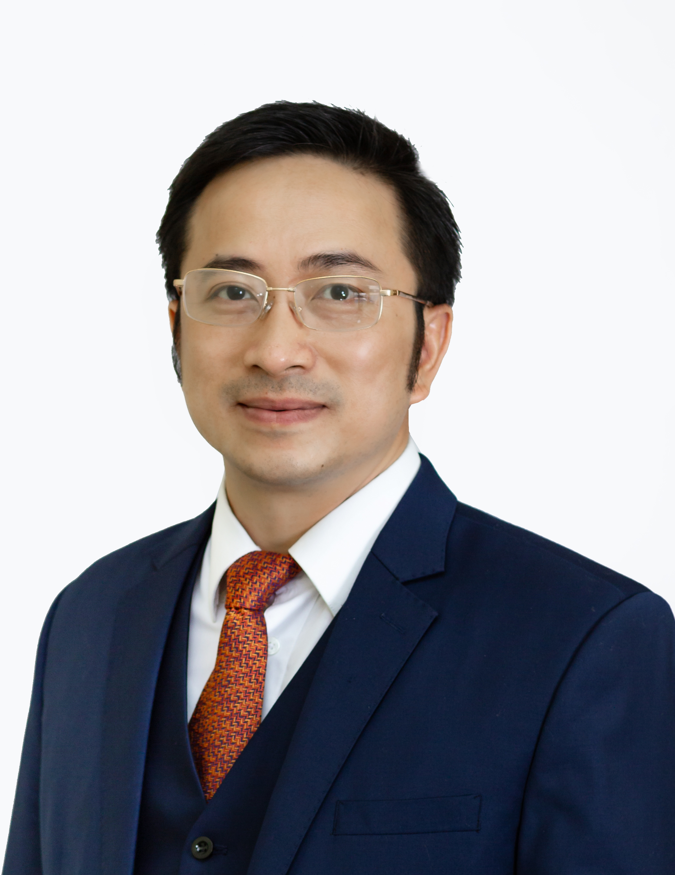Keynote Speakers

Assoc. Prof. Dr. Minh T. Nguyen
Thai Nguyen University, Vietnam
Minh T. Nguyen received his B.S., M.S. and PhD degrees in Electrical Engineering from Hanoi University of Communication and Transport, Hanoi, Vietnam in 2001, Military Technical Academy, Hanoi, Vietnam in 2007, Oklahoma State University, Stillwater, OK, USA, in 2015, respectively. Associate Prof. Dr. Minh T. Nguyen is currently the Director of Human Resource Training and Development center (HDC) at Thai Nguyen University (TNU), Viet Nam, and the director of Advanced Wireless Communication Networks (AWCN) Lab. He has interest and expertise in a variety of research topics in telecommunications, computer networking, and signal processing areas, especially compressive sensing, and wireless/mobile sensor/ robotic networks. He serves as technical reviewers for several prestigious journals and international conferences. He also serves as Editors for some journals as, Wireless Communication and Mobile Computing, Transactions on Industrial Networks and Intelligent Systems and Editor in Chief for ICSES Transactions on Computer Networks and Communications.
Unmanned Aerial Vehicles (UAVs) for Remote Sensing: Applications, Technical Problems and Research Orientations
Abstract: Over the past few decades, remote sensing has established itself as an effective technique for monitoring and data collection across several industries, weather conditions, and geographic locations. UAV technologies have demonstrated their distinct benefits in a variety of remote sensing applications, including precision agriculture, forestry, power transmission lines, buildings, artificial objects, and natural surroundings. UAV remote sensing techniques can be used in precise ground object identification and detection.
This talk considers UAV sensing networks that comprise hardware and networking techniques. The networks' data collecting algorithms are discussed. Advanced data processing methods for networks are also offered. Some control algorithms for deploying and maneuvering the UAVs in such networks are proposed and evaluated. The issues with the UAVs' energy efficiency are discussed and resolved. The presentation will offer some prospective areas for either future developments or research collaborations.

Assoc. Prof. Dr. Chi Nguyen Van
Thai Nguyen University of Technology-Thai Nguyen University, Vietnam
Chi Nguyen Van received his B.S degree in Instrument and Control Engineering from Thai Nguyen University, Viet Nam, in 2000; M.S. and Ph.D. degrees in Automation and Control Engineering from Hanoi University of Technology and Science, Hanoi, Vietnam in 2006, and 2012, respectively. Assoc. Prof. Dr. Chi Nguyen Van is currently the Head of the Faculty of Electronic Engineering at Thai Nguyen University of Technology (TNUT), Viet Nam, and a researcher of the Dynamic and Control Lab. His research interests include nonlinear control, adaptive control, optimal control, and system identification for Energy Storage System using lithium-ion batteries and dynamic process systems. He serves as a technical reviewer for several prestigious journals and international conferences.
State-of-Charge Estimation of Lithium–Ion Battery Using a Long Short-Term Memory Network
Abstract: Improving the accuracy of state-of-charge (SOC) estimates is essential in electric vehicles using Lithium-Ion batteries, helping users to reliably predict the driving range and control the optimal charging process in order to prolong lifespan and ensure safety during use. However, due to the temperature, and charge-dependent electrochemical nonlinear dynamic of Li-ion batteries, SOC estimation remains a significant technical challenge today. Traditional SOC estimation methods such as the filters, require the cell’s exact model with pre-determined electrochemical characterizations, and filter design and parameter tuning that must be specified to each battery type. In contrast, neural networks are data-driven approaches that require minimal knowledge about the nonlinear dynamics of battery. To help solve this problem, this work proposes a method to solve SOC estimation using a Long Short-Term Memory (LSTM) network that is capable of remembering battery characteristics related to electrochemical parameters changes during the long term, as the number of discharge cycles and the effects of aging increase. The methodology includes data preparation, LSTM network model development, LSTM network configuration tuning, and robust validation of the LSTM against measurement noise. This method is tested to estimate SOC with data collected through the testing data of 3Ah LG HG2 cell, SOC estimation results are also compared with feedforward neural network (FNN) and convolutional neural network (CNN) shows that SOC estimation accuracy of 1% root mean square error.
